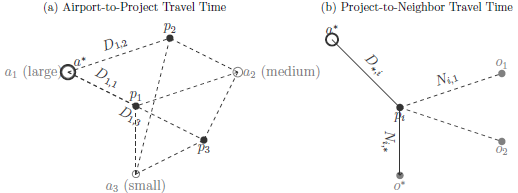Inaccessibility and Compliance: Geography, Institutions, and Agency in Foreign Aid
Presented at the Individuals in International Policy Workshop (with Ben Gottfried).
Existing scholarship highlights that bureaucratic capacity is crucial for overcoming international development challenges, but bureaucrats' impacts are often conditional on structural constraints. We argue that when geographic and institutional constraints align, bureaucratic behavior is consistent with a rational inattention framework: cost- and information-constrained bureaucrats allocate finite attention to seemingly more solvable problems. We test our pre-registered hypotheses using data on project-level compliance with World Bank safeguard policies on resettlement, indigenous peoples, and the environment. Using spatial regressions that account for autocorrelation, we find that longer travel times for bureaucrats to monitor projects negatively affect safeguard compliance. Consistent with rational inattention, effects concentrate among the most inaccessible projects, and project density is less predictive of overall patterns. While interaction analyses show that higher-performing bureaucrats can partially mitigate these effects, structural constraints dominate. Our results demonstrate how the interplay of geography and institutions channels bureaucratic behavior, clarifying the limits of individual agency in development. [Preliminary Draft Paper]

